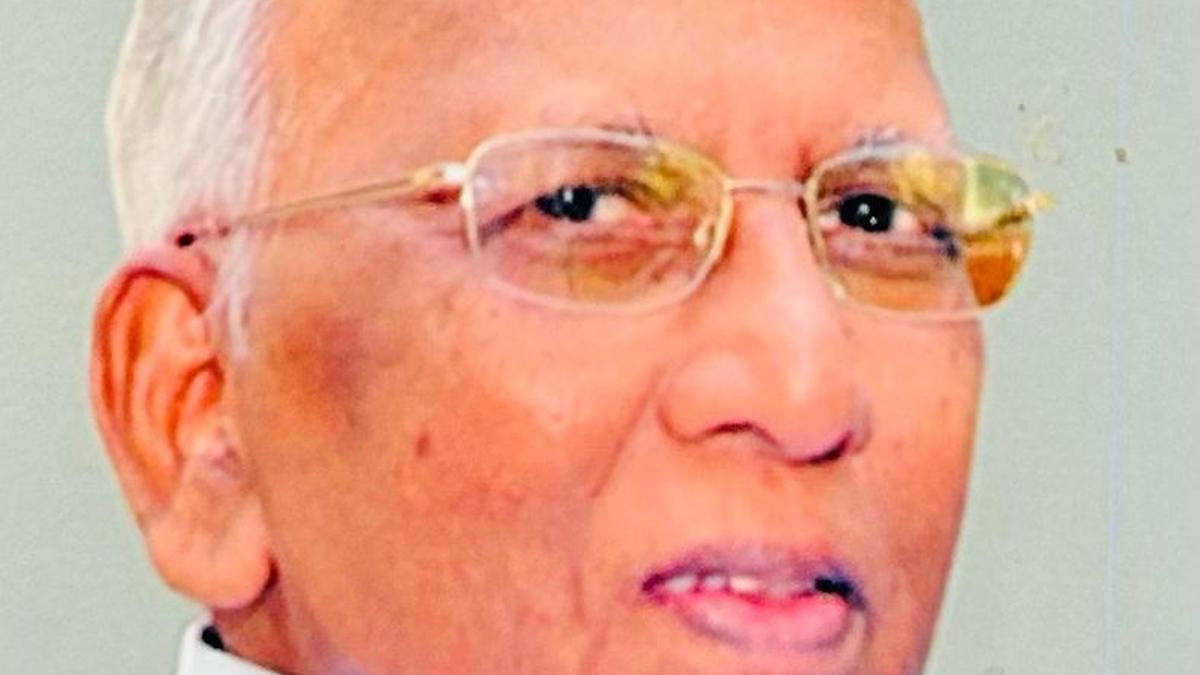
To sir, with love: A tribute to Prof Mithra G Augustine of Madras Christian College
The Hindu
Professor Mithra, who passed away recently, was a well-loved principal and teacher of the august Chennai institution
Professor Mithra G Augustine, educationalist, zoologist, former principal of Madras Christian College and former director, Ecumenical Christian Centre, Whitefield, Bengaluru, passed away on February 18, 2025, at Tambaram.
Prof Mithra represents the best of post-independence higher education in India and the role played by colleges in shaping better citizens. To a large extent, he was a living exponent who practised what William Miller, one of the greatest Scottish educationalists of the 19th Century mentioned about higher education, “College is educating, not training! It seeks to prepare the students for life, rather than a livelihood. He is helped to think clearly and independently, have a moral compass, live fully and courageously”.
Generations of students who studied at Madras Christian College, had the pleasure of his company and guidance in various forms as their professor, warden and principal from 1981-89.
Prof Mithra’s contribution is substantial for the reason that UGC introduced the concept of autonomous colleges in 1978 and India’s first autonomous institutions came up during that time; MCC was among the first few autonomous colleges in Tamil Nadu. It was a model which was being tested and academic integrity which was the corner stone of that model needed academic leaders of integrity.
As the principal of one of the oldest colleges in India, Prof Mithra fitted into that role beautifully. His dedication, enthusiasm and ability to overcome difficulties made the system work like a well-oiled machine. He never compromised on academic integrity which was visible in the way assessments were carried out. With his team of department heads, he revamped the syllabus, made it contemporary and equipped the staff to learn more, so that it could be transferred to the students. He also made the departments decentralised, so that developments in their respective fields can be shared with the students without waiting for the central authority to give the green signal. This enabled the products of the college to be respected for their learning acumen, value their standards and rank them high in career placements. To a large extent, the success of autonomous colleges like MCC is the reason why UGC decided to expand on this model and make it pan India, extending it to private and deemed universities.
The residential hall system which was the legacy of the Scottish administrators was nurtured. Prof Mithra was a benevolent administrator and his long years as the warder of Bishop Heber Hall made him understand how youth think and act. The manner in which he ensured discipline had the appreciation of the staff and students alike. Conduct unbecoming of an MCCian on or off campus was severely dealt with. Although fun and pranks on campus was taken in good spirit it was never at the expense of genial disposition or the courtesy and dignity of others. Regulations were no penal code but it was followed more in terms of traditions and everyone desirous of college community had to willingly honour them.
A compelling sense of history together with an exceptional regard for all that was good in college in the first 150 years spurred the zeal of the Fulbright &Smith- Mundt scholar and Danforth scholar. He could have stayed back in Ohio State University after his doctoral studies but chose to return to start his career as a lecturer in the Zoology department. It was poetic justice that he was the principal of the college when it celebrated 150 years which was attended by the then Prime Minister of India, Rajiv Gandhi.













